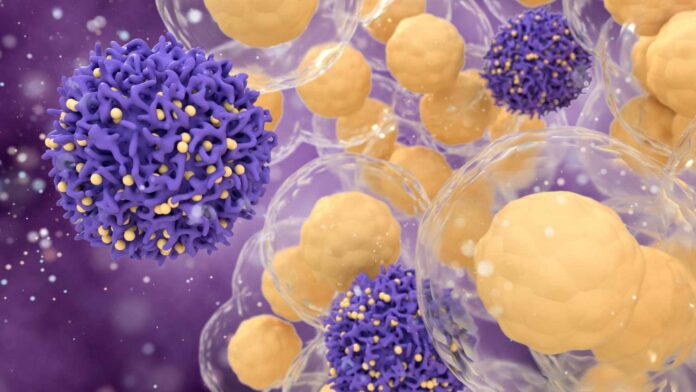Researchers have created tiny drones called NK cell-engaging nano drones (NKeNDs) that effectively use natural killer (NK) cells to fight cancer. These nanodrones are made from protein cage nanoparticles and carry unique tags that allow them to target specific cancer cells (HER2 or EGFR) while recruiting NK cells.
When tested in mice with tumors, the nanodrones, especially HER2 @NKeNDs, activated NK cells, suppressing tumor growth without causing side effects. This innovative method holds promise for treating difficult-to-treat cancers by specifically engaging NK cells.
A groundbreaking study by Professors Sebyung Kang and Sung Ho Park at UNIST has achieved a major breakthrough in cancer treatment. They have created innovative “NK cell-engaging nanodrones” that can selectively target and eliminate cancer cells, offering a potential solution for challenging cancers.
The nanodrones, named NKeNDs, utilize natural killer (NK) cells, essential components of the body’s immune response against cancer. This development opens new possibilities for effective cancer therapies by harnessing the power of NK cells.
These innovative NKeNDs, named HER2 @NKeND and EGFR@NKeND, are designed to target cancer cells and recruit natural killer (NK) cells. They carry specific tags on their surface using the SpyCatcher/SpyTag system, displaying ligands for both cancer cells (HER2Afb or EGFRAfb) and NK cells (aCD16Nb). In experiments, HER2 @NKeNDs bound specifically to HER2-overexpressing SK-OV-3 cells and EGFR@NKeNDs to EGFR-overexpressing MDA-MB-468 cells, as well as human NK cells.
When these nanodrones engage human NK cells with the target cancer cells, the NK cells become activated, effectively eliminating the cancer cells in a lab setting. Notably, when administered to mice with SK-OV-3 tumors and human PBMCs, HER2 @NKeNDs led to activated human NK cells infiltration into the tumor sites. This resulted in significant suppression of tumor growth without causing noticeable side effects.
The research, featured in the respected journal Nano Today on December 2, received generous support from the National Research Foundation of Korea (NRF), the Ministry of Science and ICT (MSIT), the University Key Research Institute (C5: Center for Cell to Cell Communication in the Cancer), and the SRC Cellular Responses to Metabolic Stress Research Center (CRMSRC).
Journal reference:
- Seong Guk Park, Hyo Jeong Kim et al., Protein cage nanoparticle-based NK cell-engaging nanodrones (NKeNDs) effectively recruit NK cells to target tumor sites and suppress tumor growth. Nano Today. DOI: 10.1016/j.nantod.2023.102075.
